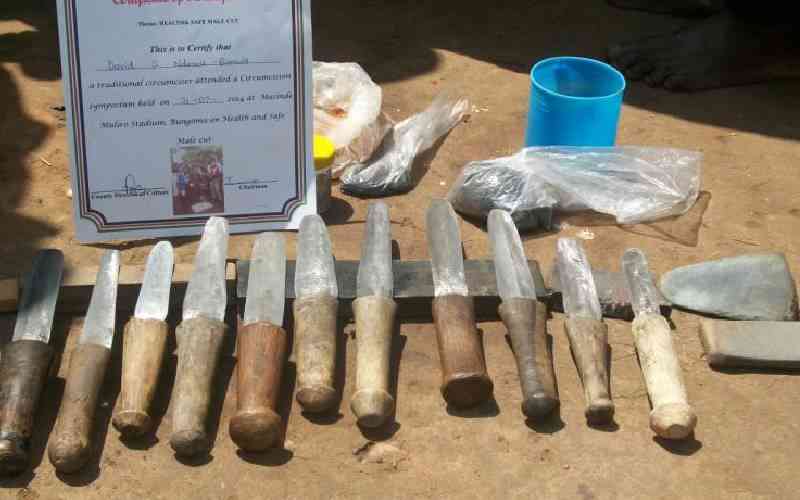×
The Standard e-Paper
Informed Minds Prefer The Standard

According to the elder, poor post-cut supervision resulted in many initiates being allowed to leave their homes before they could fully heal. [Titus Oteba, Standard]
A rise in cases of botched circumcision among boys has raised concern among parents, with elders and medics now pointing an accusing finger at quacks.